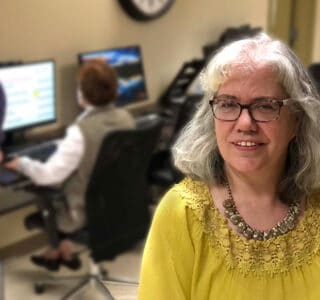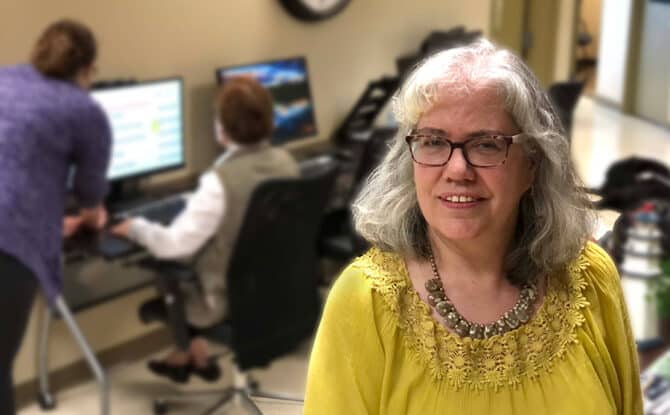
Q&A: Martha Younger-White
The Chicago Lighthouse’s Senior Vice President of Employment and Rehabilitation Services on how the pandemic has created challenges and opportunities for people with disabilities.
The past 18 months have been a roller-coaster for The Chicago Lighthouse’s Employment Services Program. At the beginning of the pandemic, Job Counselors had to quickly adapt to providing services remotely. That soon led to putting a greater emphasis for clients on online job searching and Zoom interview preparations. Now, as many employers are facing a labor shortage, they are seemingly more apt to consider hiring people with disabilities. In the following Q&A, The Chicago Lighthouse’s Senior Vice President of Employment and Rehabilitation Services Martha Younger-White discusses the current state of employment for people with disabilities, what has been accomplished in the 31 years since the passage of the Americans with Disabilities Act, and how the pandemic and labor shortage have helped people with disabilities find jobs.
What are some of the misconceptions employers may have about hiring people with disabilities?
One of the things we see consistently is a misperception of what it costs to hire someone with a disability. Many employers think the costs to provide accommodations will be extensive, when, in reality, the average cost is less than $500. For example, an accommodation may only require a schedule change because of transportation issues; an individual can work a full day, just on a slightly altered schedule, which does not cost the employer anything. Employers should not be afraid to have these conversations, as they may be pleasantly surprised by the outcome.
What role do you and your team play in getting employers to change their minds?
We have had some positive results by simply sharing the attributes that people with disabilities bring to the workplace. For example, they tend to be more dependable in terms of their overall attendance and attrition rates, meaning they tend to stay longer on the job than their non-disabled peers. In addition, they bring a different perspective that is helpful. A lot of people with disabilities have had to think outside-the-box when it comes to daily living. That can help companies as they search for new ideas.
What can people with disabilities do to increase their opportunities?
What I would tell any job seeker is to come to us ready to talk about what kind of job goal you have in mind, and how you want to get there. In some cases, that may mean getting more education, like some college or a high-school diploma. We are also stressing the importance of a good resume. A lot of job seekers don’t understand that potential employers only spend about 10 seconds looking at a resume. There are key words that may help you get to that next step. I also think it is a good idea to participate in several mock job interviews to get the practice about speaking about yourself and value you can provide to a workplace.
Through the pandemic, has it become harder, easier, or about the same to place people with disabilities in jobs?
The pandemic has brought us a few new opportunities. Remote positions have opened up opportunities for people with disabilities to have jobs that they might not have had a chance at before. The challenges we now face are getting employers to invest in the adaptive equipment that makes remote work possible. There has also been a shortage of workers recently, which is leading some employers to more readily consider people with disabilities.


